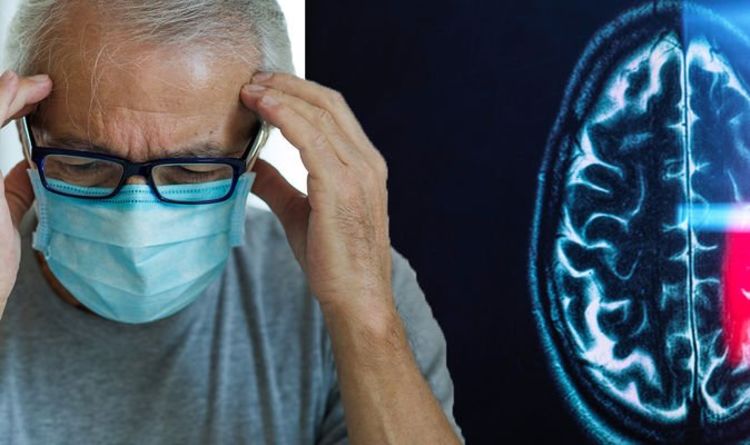Coronavirus warning: COVID-19 diagnosis puts you at risk of dementia says study

The race to get everyone in the UK inoculated against COVID-19 – the disease caused by the coronavirus – has been given further impetus in light of recent research. The research, published in the journal The Lancet Psychiatry, shows the impact a Covid infection can have on the brain. Researchers from Oxford have found a link between a diagnosis of COVID-19 and the subsequent diagnosis of several psychiatric and neurological conditions, including dementia.
Covid sufferers were 16 percent more likely to develop a psychological or neurological disorder after Covid than after other respiratory infections, and 44 percent more likely than people recovering from flu.
Dr Sara Imarisio, Head of Research at Alzheimer’s Research UK, said:
“Previous studies have highlighted that people with dementia are at higher risk of developing severe COVID-19. This new study investigates whether this relationship may also hold in the other direction.
“This retrospective study, mainly based on US data, indicates that people are at an increased risk of being diagnosed with dementia in the six months following a COVID-19 diagnosis, compared to those diagnosed with the flu or other respiratory disease. This risk is highest for those who were admitted to intensive treatment units.
“While this study analysed data from the first six months following a COVID-19 diagnosis, this increased risk may not be limited to this time frame. Given that the peak of COVID-19 hospitalisations in the UK occurred in January this year, and we already expect a backlog of people waiting to come forward or be seen about memory concerns, services must be prepared to deal with a large number of potential dementia cases.”
“But for some people, symptoms can last longer,” explains the NHS.
There are lots of long term symptoms you can have after a coronavirus infection.
Common long COVID symptoms include:
- Extreme tiredness (fatigue)
- Shortness of breath
- Chest pain or tightness
- Problems with memory and concentration (“brain fog”)
- Difficulty sleeping (insomnia)
- Heart palpitations
- Dizziness
- Pins and needles
- Joint pain
- Depression and anxiety
- Tinnitus, earaches
- Feeling sick, diarrhoea, stomach aches, loss of appetite
- A high temperature, cough, headaches, sore throat, changes to sense of smell or Taste
- Rashes.
“Contact a GP if you’re worried about symptoms four weeks or more after having coronavirus,” advises the NHS.





